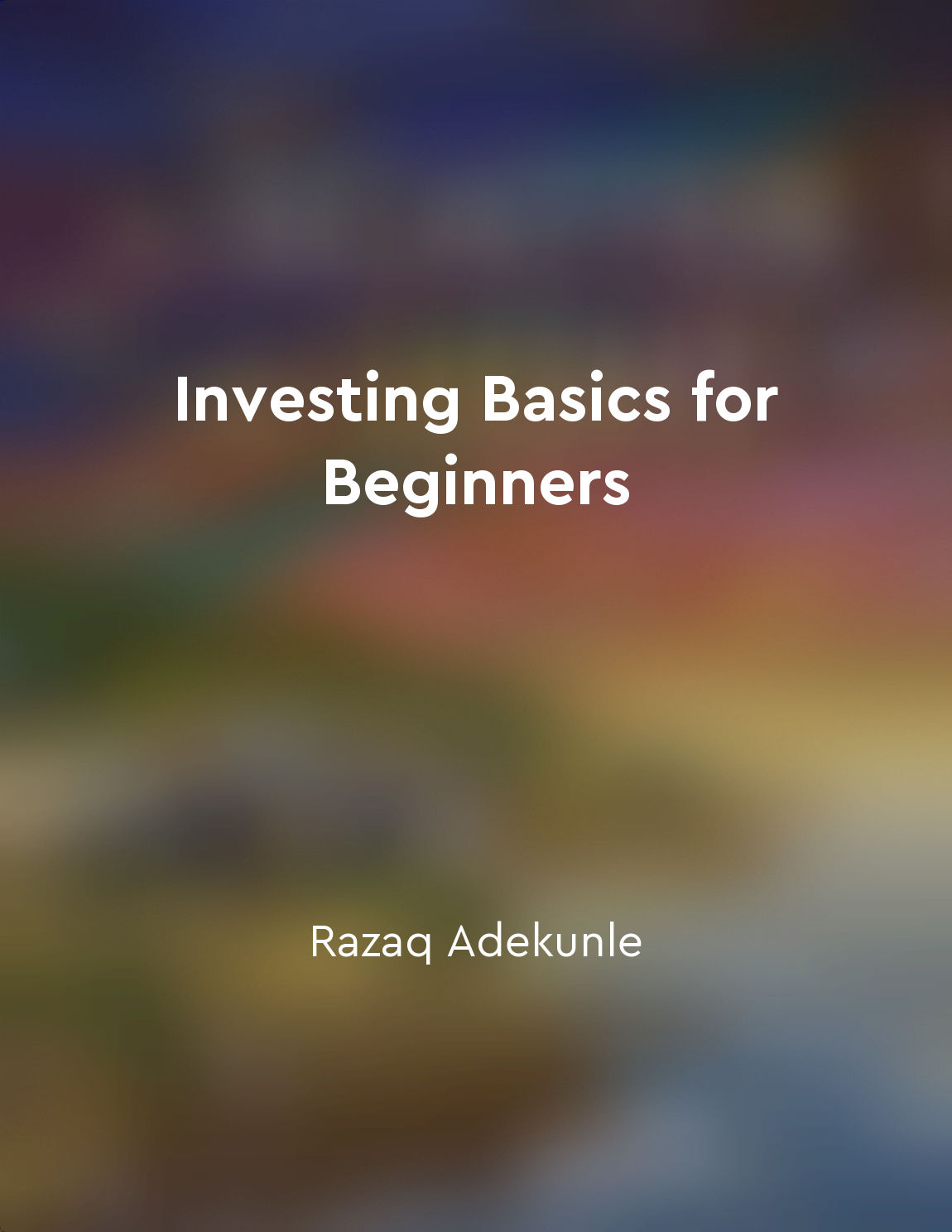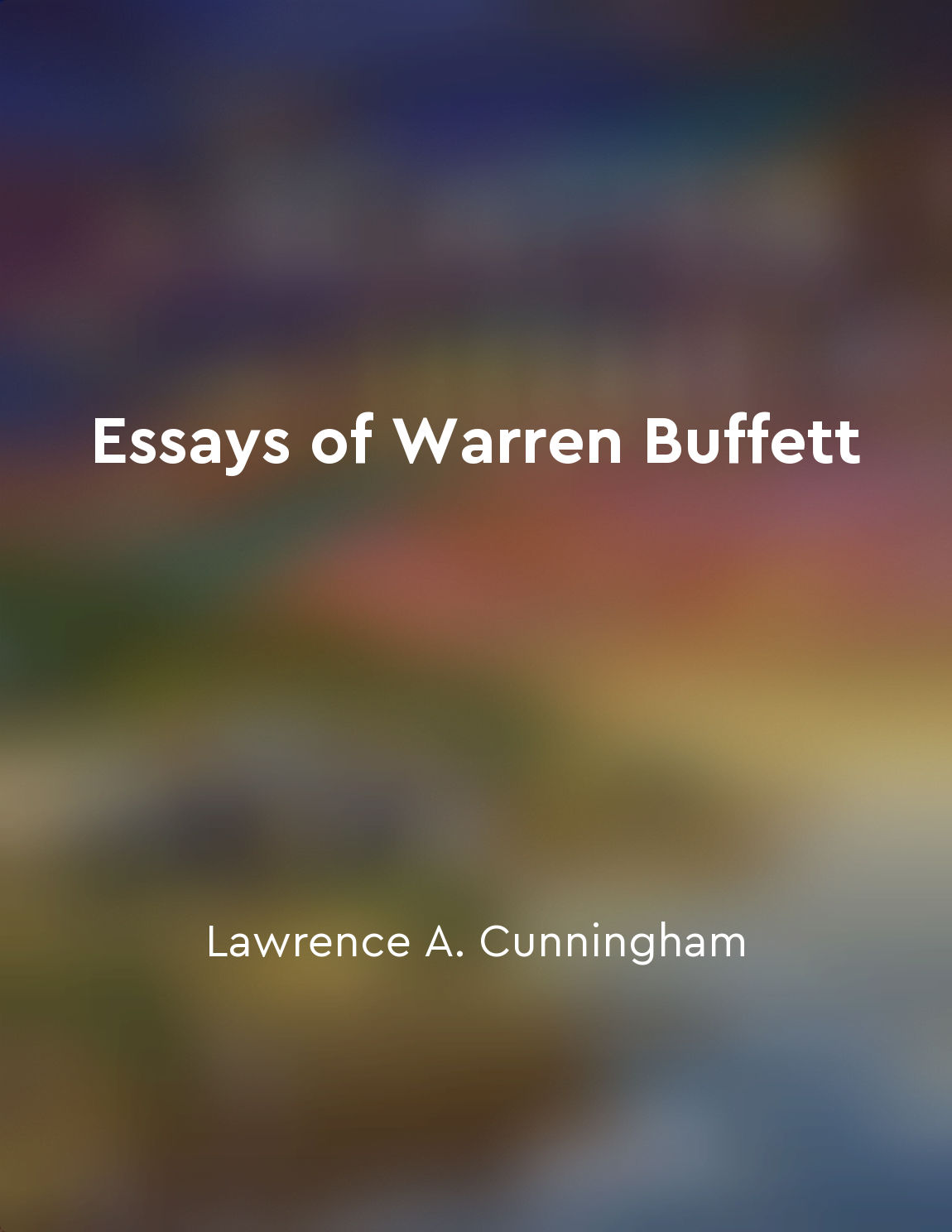Make decisions based on facts, not emotions from "summary" of Summary - Rich Dad Poor Dad by David De Angelis
When it comes to making decisions, it is essential to rely on facts rather than emotions. Emotions can cloud our judgment and lead us astray, while facts provide us with a clear and objective basis for decision-making. This is a key principle that can help us navigate the complex world of finance and investing. In the book "Rich Dad Poor Dad," the author emphasizes the importance of taking a rational and analytical approach to decision-making. By focusing on the facts and data available to us, we can make informed choices that are based on reality rather than on our feelings or impulses. This can help us avoid costly mistakes and achieve our financial goals more effectively. One of the dangers of making decisions based on emotions is that they can be influenced by external factors such as fear, greed, or peer pressure. These emotions can lead us to make impulsive decisions that may not be in our best interests in the long run. By contrast, decisions based on facts are more likely to be grounded in reality and to reflect our true needs and objectives. By making decisions based on facts, we can also avoid falling into the trap of wishful thinking or self-deception. Emotions can make us see things in a distorted or exaggerated way, leading us to believe in unrealistic outcomes or to ignore warning signs. Facts, on the other hand, provide us with a solid foundation for assessing risks and opportunities in a more objective and realistic manner. In the world of finance and investing, where outcomes can be unpredictable and stakes can be high, it is particularly important to rely on facts rather than emotions. Market trends, economic indicators, and financial data can provide us with valuable insights that can guide our decision-making process and help us make more informed choices. By staying grounded in reality and focusing on the facts, we can improve our chances of success and avoid unnecessary risks or losses.- The principle of making decisions based on facts, not emotions, is a powerful tool that can help us make smarter choices in all areas of our lives. By cultivating a rational and analytical mindset, we can navigate complex situations with greater clarity and confidence, leading to better outcomes and a more fulfilling life.
Similar Posts

Inflation erodes the value of money over time
Inflation is the silent killer of wealth. It's the reason why a dollar saved 50 years ago is worth a fraction of a dollar today...
Utilize various valuation methods
The process of determining the value of a security involves the use of a variety of methods. Each method offers a different per...
Avoid companies with a high level of debt
When evaluating a potential investment, it is crucial to pay attention to the level of debt a company carries on its balance sh...
Avoid market timing and focus on longterm potential
The investor who places primary emphasis on timing, in the hope of being able to buy at the psychologically moment and sell the...
Trading is a game of psychology
Trading, my dear boy, is not a game for the stupid. It is a game of psychology, played by men and women who have an understandi...

Understand the difference between active and passive investing
Active investing involves actively buying and selling stocks, bonds, or other securities in an attempt to outperform the market...
Recognize when to sell and when to hold
Knowing when to sell and when to hold is a crucial skill for investors. It's easy to get caught up in the excitement of a risin...

Reputation reflects character in business dealings
Buffett emphasizes the importance of reputation in business dealings, stressing that a good reputation is a reflection of one's...
Look for opportunities where others see risks
Value investors are always on the lookout for potential opportunities that others may overlook or dismiss due to perceived risk...
Dollarcost averaging smooths out market fluctuations
The idea behind dollar-cost averaging is that if you consistently invest a fixed amount of money at regular intervals, you can ...

